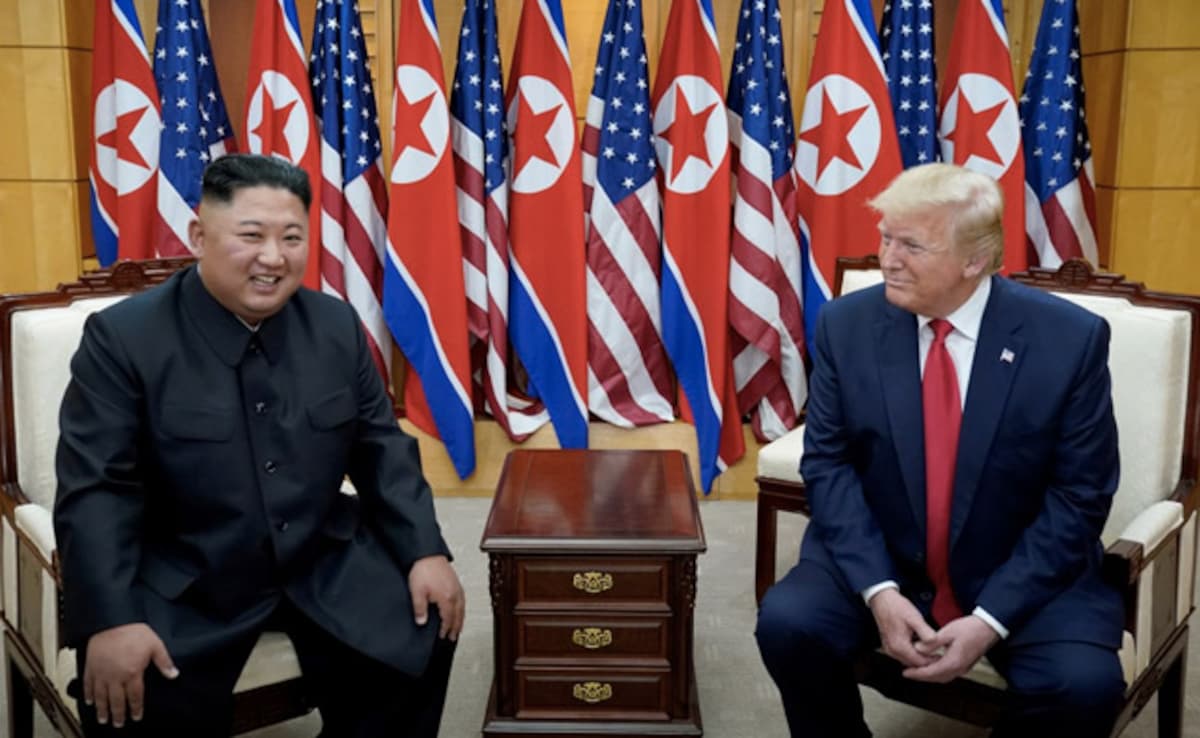
Exclusive: According to an ex-diplomat, if Trump is elected, North Korea wants to resume nuclear discussions
According to a top North Korean diplomat who recently defected to South Korea, if Donald Trump is reelected, North Korea wants to resume nuclear talks with the United States and is developing a new negotiation approach.
Last month, Ri Il Gyu’s escape from Cuba made headlines throughout the world. Since 2016, he was the highest-ranking diplomat from North Korea to defect to the South.
In his first interview with foreign media, Ri stated that North Korea’s top foreign policy priorities for the coming year and beyond are the United States, Japan, and Russia.
According to Ri, Pyongyang was eager to resume nuclear talks while fortifying ties with Russia in the event that Trump—who, in his last term, engaged in both intense brinkmanship and unprecedented diplomacy with North Korea—won reelection in November.
According to Ri, Pyongyang’s diplomats were formulating a plan for such eventuality, hoping to get financial assistance, have its weapons program sanctioned less, and be removed from the list of states sponsoring terrorism.
His remarks suggest that the North may be changing its position from its current one, which has been abandoning the prospect of diplomatic relations with the United States and threatening armed conflict.
Ri partially attributed the collapse of the 2019 summit between North Korean leader Kim Jong Un and US President Donald Trump to the imposition of sanctions and Kim’s choice to entrust “inexperienced, clueless” military leaders with nuclear diplomacy.
“Kim Jong Un doesn’t know much about international relations and diplomacy, or how to make strategic judgment,” he stated.
“This time, the foreign ministry would definitely gain power and take charge, and it won’t be so easy for Trump to tie North Korea’s hands and feet again for four years without giving anything.”
JAPAN AID, RUSSIAN TIES
North Korea benefitted from assistance with its economy and missile technology by establishing stronger connections with Russia. However, blocking new sanctions and weakening current ones might be more advantageous, according to Ri, who also added that Pyongyang’s negotiating leverage over Washington would increase.
“The Russians got their own hands dirty by engaging in illicit transactions and, thanks to that, North Korea no longer needs to rely on the U.S. to lift sanctions, which essentially means they stripped the U.S. of one key bargaining chip,” he stated.
Prime Minister Fumio Kishida of Japan has expressed his desire to meet with Kim while in Tokyo, although there has long been a problem with the subject of Japanese nationals kidnapped by North Korea in the 1970s and 1980s.
Ri stated that Kim would try to arrange a meeting with Japan with the goal of obtaining financial support in exchange for yields on the kidnapping issue.
Tokyo asserts that 17 of its residents were kidnapped; five of them made a successful return to Japan in 2002. After acknowledging that it had abducted 13 Japanese people and claiming that the others had either perished or their whereabouts were unknown, Pyongyang views the matter as resolved.
According to Ri, Kim would be open to altering the stance taken by his father, Kim Jong Il, in order to secure financial backing.
“They’re saying that the issue was resolved, but that’s just to boost negotiating power until he makes concessions at a summit,” he stated.
DEFECTION AND RESENTMENT
Ri says he had always dreamed of living in South Korea, having attended a French school in Algeria and lived in Cuba with his late father, a state media reporter. However, he never took action to leave until he was threatened with death by a diplomatic colleague when he refused to accept bribes.
The turning point was when Pyongyang abruptly rejected his offer to pay for medical care for a herniated disc in his neck in Mexico.
“That exploded all the resentment I had been harbouring towards the regime,” he stated.
According to Ri, the COVID-19 shutdown made life more difficult both at home and for those stationed abroad because most phone lines to Pyongyang were severed in order to stop any information from getting out there.
In addition, North Korea has had to close twelve of its fifty-four diplomatic missions due to financial difficulties.
“When they began reopening and summoning those working abroad in early 2023, they asked to bring everything from used toothbrushes to spoons back home, saying there’s nothing there,” he explained.
In addition, Ri had observed—and as part of his job, attempted to obstruct—the establishment of diplomatic ties between South Korea and Cuba, a former ally of North Korea during the Cold War.
“I had done everything to block that from happening, but establishing relations with Cuba was the best thing South Korea had done since last year,” he stated. “It was a model example of how the tides of history have turned, and where a normal civilisation of the international community is headed.”
All Categories
Recent Posts
Tags
+13162306000
zoneyetu@yahoo.com



